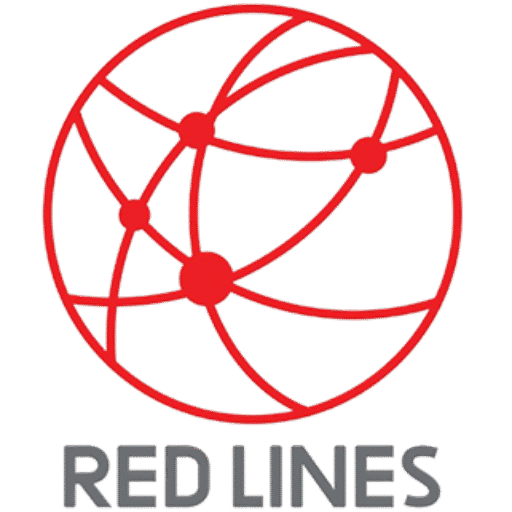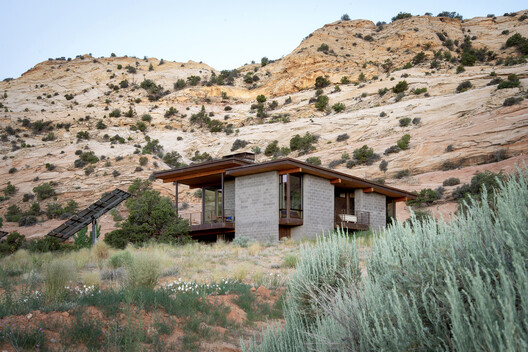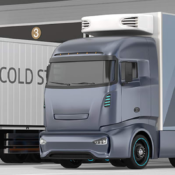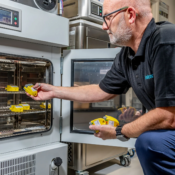Saudi Arabia’s rapid economic growth has fueled a demand for world-class storage and distribution facilities. Warehouses are no longer just buildings that hold products; they are critical hubs that keep supply chains moving, safeguard inventory, and ensure product quality. But in cities like Riyadh, Jeddah, and Dammam, where desert heat can soar above 45°C, designing warehouses that can withstand extreme climates has become a pressing challenge.
This is where temperature mapping studies play a vital role. At Redlines (www.Redlines.sa), we specialize in providing comprehensive temperature mapping study services in Saudi Arabia, helping companies build climate-ready warehouses that perform effectively in harsh desert conditions.
The Challenge of Desert Heat
The desert environment presents unique pressures on modern warehouse designs. Unlike moderate climates, warehouses in Saudi Arabia face:
- High ambient heat that places extra strain on cooling systems.
- Uneven temperature zones inside large spaces that can compromise sensitive goods.
- Dust and air circulation issues that affect HVAC efficiency.
- Energy consumption spikes, as cooling equipment works harder to stabilize conditions.
For industries handling pharmaceuticals, food, or high-value goods, these challenges are even more critical. Temperature fluctuations inside a warehouse—even by a few degrees—can lead to spoilage, quality degradation, or regulatory non-compliance.
A temperature mapping study provides warehouse operators in Riyadh, Jeddah, and Dammam with actionable insights into how heat behaves in their facilities and what strategies are needed to overcome these challenges.
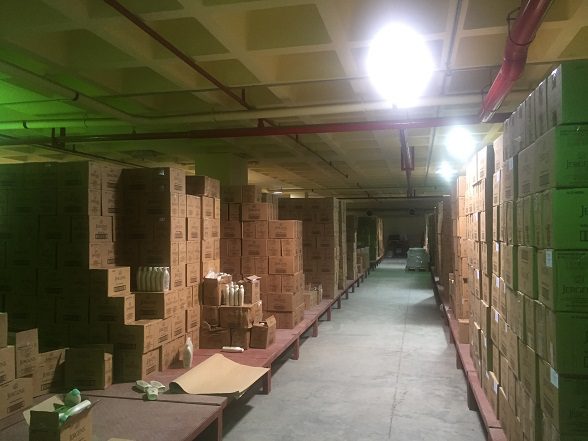
What is a Temperature Mapping Study?
A temperature mapping study involves placing calibrated sensors throughout a warehouse to monitor how temperature and humidity vary over time. By collecting data during both peak summer and cooler periods, it becomes possible to identify:
- Hotspots where cooling does not reach effectively.
- Cold spots where goods risk condensation or frost damage.
- Areas affected by solar exposure, poor insulation, or airflow imbalance.
At Redlines, we use advanced monitoring technology to conduct these studies, providing businesses across Saudi Arabia, Jeddah, Dammam, and Riyadh with clear reports and recommendations.
Building Climate-Ready Warehouses with Temperature Mapping
Modern warehouse design is not just about building walls and installing air conditioning—it’s about ensuring resilience against climate stress. Here’s how temperature mapping studies directly shape better, desert-ready facilities:
1. Optimizing Cooling Systems
By identifying heat zones, businesses can strategically place cooling units and airflow systems to maintain stable storage conditions without wasting energy.
2. Enhancing Insulation and Layout
Temperature mapping data highlights weaknesses in insulation and design. In warehouses exposed to Riyadh’s direct desert sun, for example, reinforced insulation and reflective roofing can significantly reduce heat buildup.
3. Energy Efficiency & Sustainability
Cooling is one of the largest operating costs in Saudi warehouses. Through a temperature mapping study, companies can reduce overuse of HVAC systems and move toward more sustainable operations.
4. Regulatory Compliance
Pharmaceutical and food storage facilities in Jeddah and Dammam must comply with strict guidelines (such as GDP and HACCP). A temperature mapping study ensures that warehouses meet these requirements and maintain product integrity.
5. Future-Proofing Supply Chains
As climate conditions grow harsher, warehouses designed with temperature mapping insights remain resilient, protecting businesses against disruptions and financial losses.
Why Choose Redlines?
At Redlines (www.Redlines.sa), we understand the unique environmental conditions of Saudi Arabia. Our team specializes in delivering temperature mapping study services in Riyadh, Jeddah, Dammam, and across the Kingdom.
With years of expertise, we help businesses across industries—pharmaceuticals, food and beverage, retail, and logistics—design and operate warehouses that are not only climate-ready but also energy-efficient and compliant with international standards.
Our services include:
- Comprehensive temperature mapping studies.
- Validation and calibration of cooling systems.
- Recommendations for insulation, airflow, and energy optimization.
- Compliance support for global and Saudi regulatory standards.
Conclusion
The desert climate of Saudi Arabia presents real challenges for modern warehouse operations. Without proper planning, high temperatures and energy inefficiencies can compromise product safety and increase costs.
Through temperature mapping studies, businesses gain the insights they need to design, upgrade, and operate warehouses built to withstand the extremes of Riyadh, Jeddah, and Dammam.
At Redlines, we are committed to building climate-ready solutions that protect inventory, strengthen supply chains, and contribute to Saudi Arabia’s vision for sustainable economic growth.
For expert support, visit us at www.Redlines.sa and discover how our temperature mapping study services can future-proof your warehouse operations.
